Starting next week the Border Criminologies blog will take its usual August hiatus. In the meantime, we leave you here Border Criminologies’ 20 most popular posts since the first post went live on 22nd April 2013.
20. People Can’t Flood, Flow or Stream: Diverting Dominant Media Discourses on Migration (2016), by Lena Kainz.
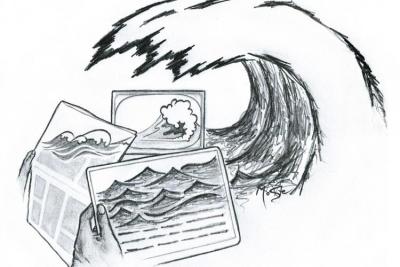
19. Fractured Childhoods: The Separation of Families by Immigration Detention, by John Hopgood on behalf of Bail for Immigration Detainees (BID) (2017)
Removing legal aid for deportation cases involving families has placed an almost insurmountable hurdle in front of many whose greatest wish is simply to be allowed to live with their families. Successive governments may have found removing judicial safeguards and legal aid support straightforward and populist. But the irreversible harm caused by those changes cannot be so easily undone.
18. Gaining Access to Prison: Authority, Negotiations, and Flexibility in the Field (2014), by Luigi Gariglio.
It is time to produce a participatory academic visual ethnography that can illuminate a whole host of custodial centres. We need to show (and not only to tell) prisoners families, colleagues, stakeholders, policy makers, and the public what these institutions are like. In so doing, we can contribute a sound and multifaceted understanding of the complexities and difficulties in which both staff and inmates interact on a daily basis.
17. The Story of ‘Missing Children’: Unaccompanied Minors in the Prevailing Refugee Crisis (2016), by Arpita Mitra.

16. British Border Control on the French North Coast (2016), by Mary Bosworth.
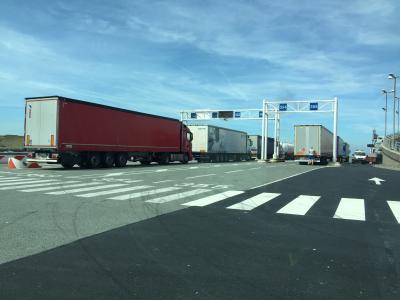
15. Argentina’s Migration Law: Changes Challenging the Human Right to Migrate (2017), by Lila García.
This blog post offers a brief overview of migration to Argentina, before turning to the development of the law and its current status.
14. Border Criminologies in Dark Times: A Response to the US Election (2016), by Border Criminologies.
As we confront the reality of a Trump Presidency, here at Border Criminologies, we once again feel the need to speak out about the importance of scholarship and activism about immigration and border control and to invite others to partner with us.
13. Unaccompanied Minors in Greece: Who Can ‘Save’ Them? (2017), by Andriani Fili and Virginia Xythali.

12. Fact Check: Did ‘Wir Schaffen Das’ Lead to Uncontrolled Mass Migration? (2016), by Thomas Spijkerboer.
In this blog post, I have put forward an alternative hypothesis to explain the rise of the number of refugees in Europe in 2015. As I indicated, empirical research to test this hypothesis fully is absent, but the hypothesis makes suggestions about the increase of the number of refugees in a more complex way, beyond the idea that 'Wir schaffen das' or the suspension of Dublin were the cause.
11. Returned and Lost: What Happens After Readmission to Turkey? (2017), by Orçun Ulusoy and Hemme Battjes.
Turkey was regarded as a safe (third) country for asylum seekers and refugees for the purposes of the EU-Turkey Statement. This designation was an outcome of a political decision rather than a policy based on evidence from the field.
10. RETURNED: Portraits of People Deported to Brava, Cape Verde (2015), by Andrea Wise.
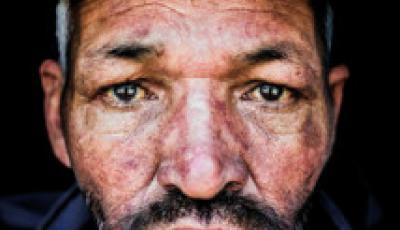
09. Refugees are also Migrants. All Migrants Matter (2015), by Jørgen Carling.
We need to embrace the inclusive meaning of ‘migrants’ as persons who migrate but may have little else in common. In that way, we respect both the uniqueness of each individual and the human worth of all.
08. What Can Hannah Arendt Teach Us About Today’s Refugee Crisis? (2017), by Asher Hirsch and Nathan Bell.
If we accept that people, as humans, have the right to have rights, states must admit refugees and assess their claims. Otherwise, those displaced are left to wander the world with nowhere to belong and, therefore, no state to protect them.
07. Europe’s Refugee Crisis: A Perfect Storm (2016), by Thomas Spijkerboer.
European policy makers are caught in tunnel vision. They do notice that their policies fail to achieve the intended effect, but draw the conclusion that what is needed is intensification of basically the same policies.
06. Turkey as a Safe Third Country? (2016), by Orçun Ulusoy.
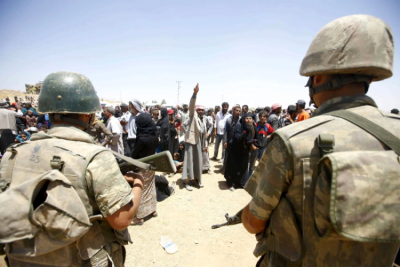
05. Fact Check: Did the EU-Turkey Deal Bring Down the Number of Migrants and of Border Deaths? (2016), by Thomas Spijkerboer.
If refugee deals like the one between the EU and Turkey do not contribute to effectuating European policies, but do have such negative effects – shouldn’t the EU think twice before concluding them?
04. The Challenges of Fieldwork: When Things Don’t Go According to Plan (2013), by Border Criminologies.
Delays, confusion, frustration, and miscommunication are part and parcel of applied research. They are, however, rarely discussed. Perhaps they seem too obvious? Maybe researchers worry about alienating gatekeepers? Or, is it that we do not want to appear incompetent, preferring instead to pretend that all is going according to plan?
03. Book Review: The Land of Open Graves: Living and Dying on the Migrant Trail (2016), by Andrew Roesch-Knapp.
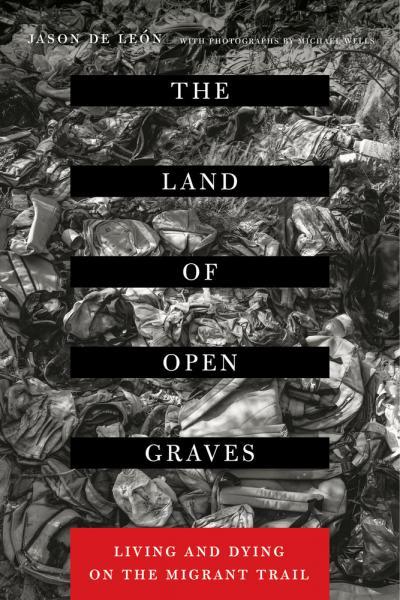
02. Reporting to the Home Office: Control, Risk and Insecurity (2015), by Ines Hasselberg.
Overall, my research shows that the impact of detention for both detainees and their families goes well beyond the actual time of detention, while reporting on bail―which allows a greater degree of freedom―isn’t a simple protocol to be followed, but rather heavily restricts the person’s choices, movement, and sense of security.
01. Border Deaths in the Mediterranean: What We Can Learn from the Latest Data (2017), by Elias Steinhilper and Rob Gruijters.
Our findings point out the continuing failure of European authorities to provide a comprehensive answer to the humanitarian crisis. More than 30,000 mostly young people have died in the past 16 years, and a resolution appears nowhere in sight. Torn between its legal and moral obligations towards refugees and its intent to maintain control over its external borders, the EUs border policy has been both inconsistent and ineffective. As a result, the humanitarian crisis in the Mediterranean is worsening and, given the current geo-political circumstances, unlikely to end anytime soon.
Share:








